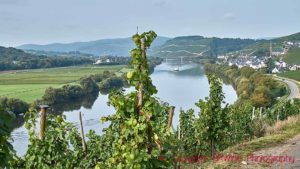
New harvesting tractor for really steep slopes
To harvest with machine or by hand? Some really don’t have a choice, e.g., producers who have vineyards on very steep slopes where no harvesting machine dares to tread. But that is starting to change.

To harvest with machine or by hand? Some really don’t have a choice, e.g., producers who have vineyards on very steep slopes where no harvesting machine dares to tread. But that is starting to change.
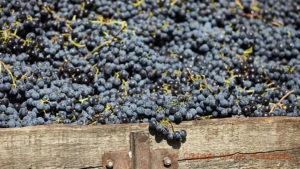
Virtually all appellations in Europe have rules that limit the yield, such as “the maximum yield is 45 hectolitres per hectare”. The theory behind this is often said to be that “a high yield gives
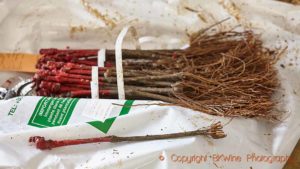
There is a lot of talk about which grape varieties will best adapt to climate change. However, less is said about the (“American”) rootstocks, although they do all the work in the soil. Whenever a

In 2016 that Rosa Kruger and André Morgenthal started The Old Vine Project (OVP) in South Africa to find and care for old, sometimes abandoned, vineyards and to draw attention to the value of old
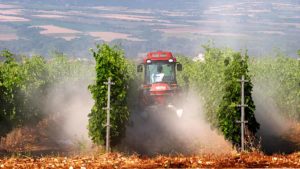
By using the new genetic technology CRISPR-CAS, Chilean scientists have produced a grape that is resistant to oidium, a fungal disease. The grape in question is Thompson seedless, a table grape, so not relevant in

The tasting at The Wine Hub’s new premises on Sibyllegatan resulted in a completely different dialogue about wine when Miguel Torres entered the scene. Torres certainly has a lot to brag about, but instead of
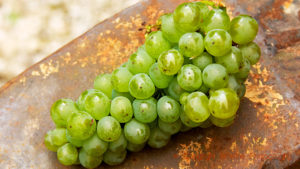
Winegrowers all over France, yes, all over the world, organic as well as conventional, spray the vines with copper against the severe fungal disease downy mildew (mildiou). There are, regretfully, very few realistic alternatives to
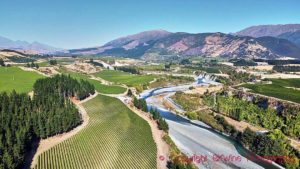
Domaine Bousquet is an Argentine organic producer in the Uco Valley in southern Mendoza. The estate is already a well-known organic producer exporting worldwide. Bousquet recently became the fourth wine producer to receive the new
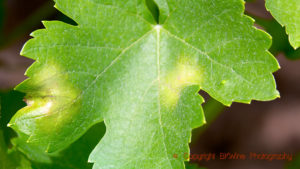
Today, 45 different “resistant” grape varieties are permitted to be planted in France. And so far, they have been planted on 1,200 hectares. There is an interest among winegrowers to plant these grape varieties that
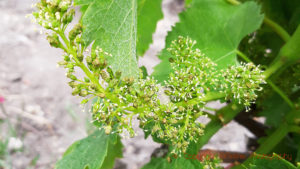
This spring’s wine tours have taken us to Champagne, Chablis and Burgundy, among other places. And here we already saw, around the 20th of May, the beginning of the flowering, which is unusually early. It
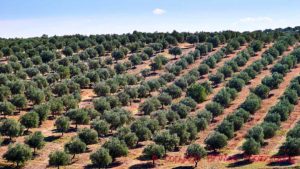
Say Andalusia and I’ll start thinking about olive trees. There are an estimated 70 million olive trees in Andalusia on just less than two million hectares. On a recent trip between Malaga and Cordoba, it
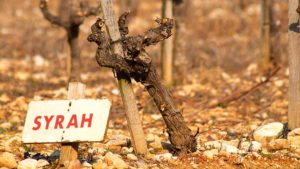
The frost has hit French vineyards again this year. So far, however, it has not been as bad as 2021. But in several places, measures have been required to heat the vineyards in some way

In the French wine magazine Vitisphere, we read about the five most significant challenges facing the winegrowers in the vineyard in 2022. These are not new challenges, but some have become more difficult. Mildiou and
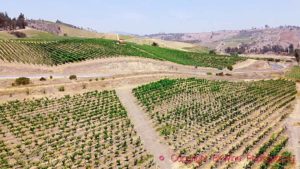
How much output you get from a certain input is what we usually call productivity. In the wine industry we usually talk about yields, often in hectolitres per hectare. This article explores the productivity/yields in
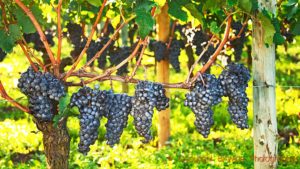
Pomerol in Bordeaux is banning the use of chemical weed control. This is the first appellation in France to take this decision. The new rules were adopted on October 21 this year (2021). The new
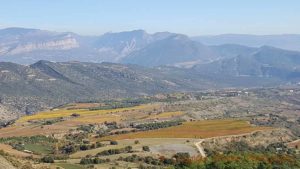
Organic, biodynamic, sustainable and now also regenerative agriculture. Are all just variations of the same theme? Torres, the producer from Catalonia who is also an environmental warrior, organized a symposium on regenerative agriculture earlier this
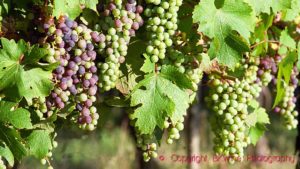
An essential phase in grape ripening is what the French call le véraison. For lack of a better one, many other languages use the same word. Véraison means that the grapes change to their final
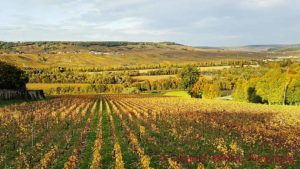
The Growers’ Association (Syndicat Général des Vignerons, SGV) in Champagne decided on July 29 to allow vineyards with lower planting density from 2023. Today it is mandatory to have at most 1.50 meters between the
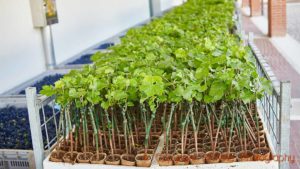
Which rootstock you choose for grafting does not affect the taste of the wine. But the rootstock provides the roots, so it must be compatible with the soil and the local climate. As part of
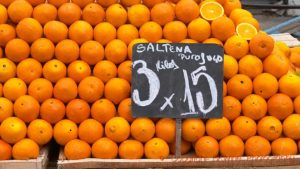
Essential oil from orange peel has a drying effect on the vine, it is desiccating. Therefore, many organic wine producers use this product to complement sulphur and copper in the fight against mildiou and oidium
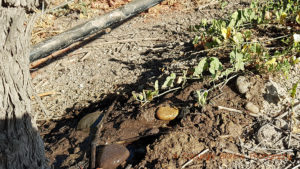
Water is vital for the vine. It should come in reasonable quantities. Whether it then comes naturally from above in the form of rain or from an irrigation system does not matter for the wine’s

Are there pesticide residues in wine? That’s become a hot topic in some media recently. We spoke with Matthieu Dubernet from Laboratoires Dubernet in Languedoc, who explained the rules for maximum residue levels (MRL) and
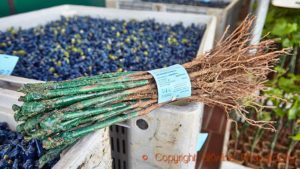
A successful and adventurous journey across the United States in the midst of the phylloxera crises in the 19th century helped save the French vineyards. Pierre Viala, a French botanist, had been sent to find
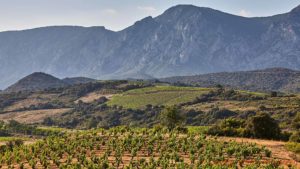
Making wine environmentally friendly is seen by many today as a matter of course. However, the extent to which producers are involved in the environment varies, not least depending on their financial situation. Sustainable viticulture
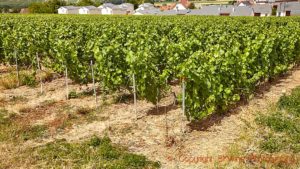
The wine industry is very aware that it needs to adapt to cope with climate change. Champagne has been experimenting with lower planting density for some time. Champagne has a high planting density, 8000 vines
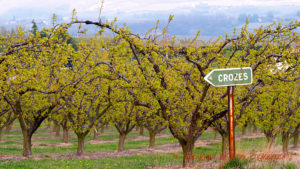
A large study that lasted for thirteen years shows that biodiversity in the vineyard is a good thing that pays off. If a vineyard is surrounded by hedges, trees and shrubs, the number of pests
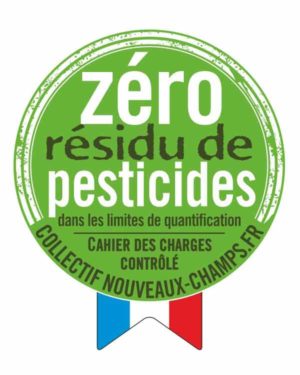
There are different ways to work sustainably and environmentally friendly. Some producers have noted consumers’ fear of pesticide residues in the wine. One path to take is then to work organically and thus completely exclude

Birds munching on ripe grapes can be a big problem in the vineyards. We have seen it in New Zealand and South Africa; it occurs in Australia and elsewhere around the world. However, from what
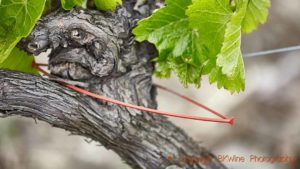
Biological control (biocontrol), or sustainable plant protection, is used more and more in the wine industry. It is, of course, a consequence of the fact that organic and sustainable viticulture is becoming more common. Biocontrol

What is natural wine? Are there rules? Is it good or weird? The concept of natural wine has emerged in recent years. It has been covered in media and bated. Many people have never drunk

To harvest with machine or by hand? Some really don’t have a choice, e.g., producers who have vineyards on very steep slopes where no harvesting

Virtually all appellations in Europe have rules that limit the yield, such as “the maximum yield is 45 hectolitres per hectare”. The theory behind this

There is a lot of talk about which grape varieties will best adapt to climate change. However, less is said about the (“American”) rootstocks, although

In 2016 that Rosa Kruger and André Morgenthal started The Old Vine Project (OVP) in South Africa to find and care for old, sometimes abandoned,

By using the new genetic technology CRISPR-CAS, Chilean scientists have produced a grape that is resistant to oidium, a fungal disease. The grape in question

The tasting at The Wine Hub’s new premises on Sibyllegatan resulted in a completely different dialogue about wine when Miguel Torres entered the scene. Torres

Winegrowers all over France, yes, all over the world, organic as well as conventional, spray the vines with copper against the severe fungal disease downy

Domaine Bousquet is an Argentine organic producer in the Uco Valley in southern Mendoza. The estate is already a well-known organic producer exporting worldwide. Bousquet

Today, 45 different “resistant” grape varieties are permitted to be planted in France. And so far, they have been planted on 1,200 hectares. There is

This spring’s wine tours have taken us to Champagne, Chablis and Burgundy, among other places. And here we already saw, around the 20th of May,

Say Andalusia and I’ll start thinking about olive trees. There are an estimated 70 million olive trees in Andalusia on just less than two million

The frost has hit French vineyards again this year. So far, however, it has not been as bad as 2021. But in several places, measures

In the French wine magazine Vitisphere, we read about the five most significant challenges facing the winegrowers in the vineyard in 2022. These are not

How much output you get from a certain input is what we usually call productivity. In the wine industry we usually talk about yields, often

Pomerol in Bordeaux is banning the use of chemical weed control. This is the first appellation in France to take this decision. The new rules

Organic, biodynamic, sustainable and now also regenerative agriculture. Are all just variations of the same theme? Torres, the producer from Catalonia who is also an

An essential phase in grape ripening is what the French call le véraison. For lack of a better one, many other languages use the same

The Growers’ Association (Syndicat Général des Vignerons, SGV) in Champagne decided on July 29 to allow vineyards with lower planting density from 2023. Today it

Which rootstock you choose for grafting does not affect the taste of the wine. But the rootstock provides the roots, so it must be compatible

Essential oil from orange peel has a drying effect on the vine, it is desiccating. Therefore, many organic wine producers use this product to complement

Water is vital for the vine. It should come in reasonable quantities. Whether it then comes naturally from above in the form of rain or

Are there pesticide residues in wine? That’s become a hot topic in some media recently. We spoke with Matthieu Dubernet from Laboratoires Dubernet in Languedoc,

A successful and adventurous journey across the United States in the midst of the phylloxera crises in the 19th century helped save the French vineyards.

Making wine environmentally friendly is seen by many today as a matter of course. However, the extent to which producers are involved in the environment

The wine industry is very aware that it needs to adapt to cope with climate change. Champagne has been experimenting with lower planting density for

A large study that lasted for thirteen years shows that biodiversity in the vineyard is a good thing that pays off. If a vineyard is

There are different ways to work sustainably and environmentally friendly. Some producers have noted consumers’ fear of pesticide residues in the wine. One path to

Birds munching on ripe grapes can be a big problem in the vineyards. We have seen it in New Zealand and South Africa; it occurs

Biological control (biocontrol), or sustainable plant protection, is used more and more in the wine industry. It is, of course, a consequence of the fact

What is natural wine? Are there rules? Is it good or weird? The concept of natural wine has emerged in recent years. It has been
Newsletter:
Get our free monthly newsletter, the BKWine Brief and join 25,000 other wine and travel enthusiasts.
Text and images may not be used without our permission. More info on copyright.